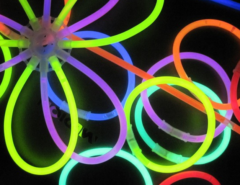The holidays should be a time of joy and family get-togethers. Don’t let a mishap with holiday items, medicine or food spoil the festivities. Here are some tips to keep everything merry and bright.
Use Caution When Decorating.
Holiday décor often glows, sparkles, and shines. That makes it especially appealing to kids. Believe it or not, very young kids will try to eat lights and ornaments. For this reason, there are a few things you should know about decorating safely.
First, be cautious when if you’re using “bubble lights”. The bubbling liquid inside is very toxic! Additionally, “heirloom” or older family ornaments and decor may be made with lead. If you want to use either bubble lights or “heirloom” decor, make sure they are well out of reach of children.
Keep an eye on any snow globes. The ones made in the US usually contain water. But, ones made in other countries have been found to contain toxic liquids like antifreeze. Yikes!
It’s also common to use scented candles and fragrances this time of year. Make sure to keep them out of reach because the delicious smell can be misleading to little ones. Cinnamon oil is especially irritating. If any oil products are eaten, get on the skin, or get in the eyes, call us for first aid advice. Also call for any exposures to oil used in a menorah.
Supervise kids when they play with new toys.
After they’ve ripped off the wrapping paper, resist the urge to open the box and leave them to play. Specifically look out for a few dangerous items. Perhaps the scariest are button batteries that are common in toys, remote controls, and singing greeting cards. If swallowed, they can cause an electrical burn inside the body! Check to make sure new toys have secure battery compartments.
Second scariest is toy race car fuel. Since it contains methanol, adults should always be the one to refill cars. Swallowing as little as a teaspoonful of methanol can be dangerous. Always calls us right away if any amount is ingested!
For older kids, science kits can be a lot of fun. We often get calls about items from these kits getting in the eyes or on the skin or younger siblings tasting them. Follow the kit’s safety recommendations, and clean up as soon as the experimenting is over.
Lastly, do not allow kids to play with small magnets. Swallowing two or more magnets can lead to a dangerous situation. As the magnets pass through the intestine, they can attract to one another. The piece of intestines pinched and caught between them can “die” and even make a hole!
Always clean up food and drink right away.
It can be exhausting to have guests over, but don’t put off cleaning up until the next morning. Kids who wake up first are likely to taste whatever you leave out, including food and alcohol. To a young child, cocktails may look and taste like juice. Even small amounts of alcohol can be dangerous for kids, so keep an eye on them during the festivities as well.
Speaking of holiday treats…did you know that many of the extracts used in holiday baking contain alcohol? Pure vanilla extract contains 35-45% alcohol. That’s almost as much as vodka! Lemon, orange and mint extract contain up to 90% alcohol. After you’ve used them, be sure to return them to a safe place.
Don’t forget medicine safety!
Grandparents and other visitors should store their medicines up, away and out of sight of young children. Provide your visitors with a safe place to store their belongings. In their suitcases or on a dresser are not safe places to keep medicines.
The holidays also disrupt normal medicine routines. Traveling across time zones may alter dosing schedules. Make a plan to avoid missing doses or double dosing medicines your children normally take at school.
One thing you don’t have to worry about? Getting help in a poison emergency. Our nurses and pharmacists will be working 24/7 over the holidays. If you need help with these or other holiday hazards, give our experts a call at 1-800-222-1222. Program the number in to your mobile phone so you can take us with you when you travel!
Want to keep reading? Check out the December issue of our Poison Prevention Press newsletter for a longer list of holiday hazards.





Leave a Reply